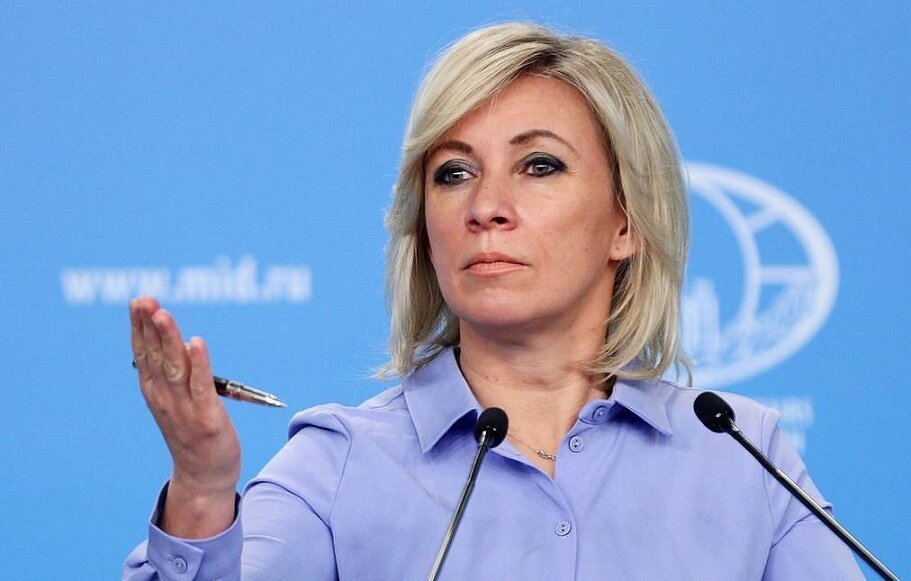Russia calls for unconditional U.S. return to JCPOA

TEHRAN – Russia has once again called on the United States to return to the 2015 Iran nuclear deal without “any preconditions or extra demands,” Russian state news agency TASS reported.
Russian Foreign Ministry spokeswoman Maria Zakharova told a news conference on Thursday that the U.S. return to the nuclear deal – officially known as the Joint Comprehensive Plan of Action (JCPOA) – should not be subjected to any preconditions.
“We proceed from the understanding that the United States’ return to the fold of the Joint Comprehensive Plan of Action for the Iranian nuclear program must not be linked with any extra preconditions or requirements,” the spokeswoman said. “We believe that progress in this respect will be achieved. We have taken note of the Iranian leadership’s repeated confirmations it is prepared to act precisely this way.”
She pointed out that the recent ministerial meeting of JCPOA participants underlined precisely this kind of attitude to the agreement. On Wednesday, the foreign ministers of Iran, China, France, Germany, the Russian Federation, and the United Kingdom, as well as the High Representative of the European Union for Foreign Affairs and Security Policy, held a virtual meeting to discuss the latest developments surrounding the JCPOA. After the meeting, Russia’s Foreign Ministry put out a statement calling for U.S.’s unconditional return to the nuclear deal.
“We believe that the U.S. return to the JCPOA should be without any preconditions. Our partners and we are ready for meaningful work in this area, and we are ready to help the Americans to step on the path of correction. This is in our shared interest,” the statement said.
Zakharova reiterated this position, saying the JCPOA is still alive and will be implemented.
“Attempts to reconfigure the nuclear deal ended in failure,” she noted, adding, “It is alive and will continue to be implemented systematically, just as the UN Security Council’s Resolution 2231 (on the nuclear deal) the way it was unanimously approved on July 20, 2015. All countries, including the United States, are obliged to comply with this resolution without any reservations.”
According to the Russian Foreign Ministry’s statement, during the ministerial meeting, Russian Foreign Minister Sergey Lavrov underlined that Moscow had taken note of Tehran’s statements, which articulate that Iran is ready to return to full adherence to the JCPOA as soon as the U.S. does the same.
Lavrov said, “We hope that not only the current members of the JCPOA but Washington as well, take note of this signal. Strict adherence to the UN Security Council Resolution 2231 by the American side is not a matter of choice, it is an obligation of any state stipulated in Article 25 of the UN Charter.”
China also called for unconditional U.S. return to the JCPOA during the Wednesday meeting, according to Hua Chunying, the spokeswoman for China’s Foreign Ministry.
“Wang Yi made a 4-point proposal: 1. Make relentless efforts to uphold the JCPOA and firmly against the maximum pressure. 2. Push for an early and unconditional U.S. return to the JCPOA. The U.S. should lift sanctions on Iran and on third-party entities and individuals. 3. Resolve the compliance issues fairly and impartially. 4. Properly handle regional security issues. China has proposed to establish a multilateral dialogue platform in the [Persian] Gulf region to start an inclusive dialogue process to build consensus on regional security issues through equal consultation and incremental progress,” the spokeswoman said in a Twitter thread after the meeting.
China and Russia have stepped up their efforts to revive and protect the JCPOA in recent weeks. On Tuesday, Russian President Vladimir Putin spoke by phone with his French counterpart Emanuel Macron to discuss the situation around the JCPOA among other issues.
“Regarding the situation around Iran’s nuclear program, both sides stated the demand for collective efforts directed at preservation of the Joint Comprehensive Plan of Action (JCPOA),” the Kremlin said in a statement.
SM/PA
